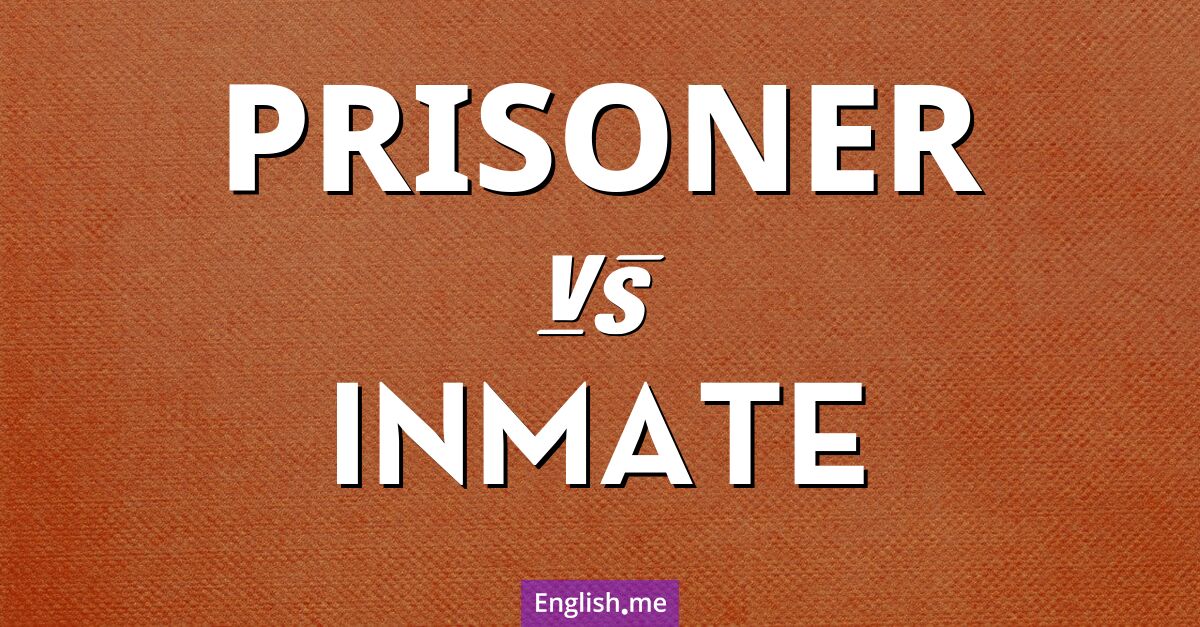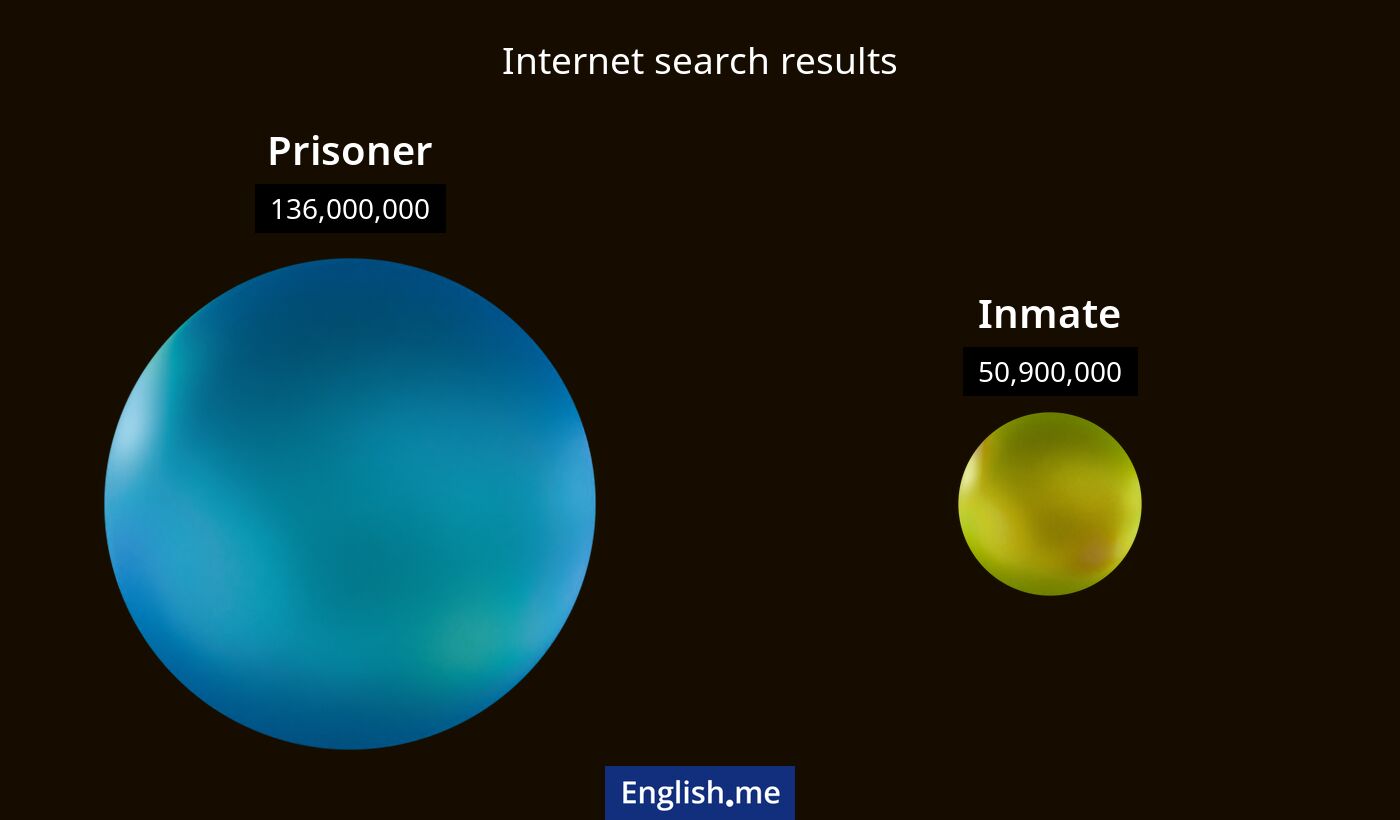Beyond bars: comparing "prisoner" and "inmate"

 What is similar?
What is similar?
Both "prisoner" and "inmate" refer to a person who is confined in a prison or detention facility. They are often used interchangeably in common language to describe individuals who are serving a sentence or are otherwise held in custody.
 What is different?
What is different?
While both terms refer to confined individuals, "prisoner" can have a broader use, often employed in contexts like "prisoner of war" or metaphorically (e.g., "a prisoner of one's own mind"). "Inmate", on the other hand, is specifically used to describe someone residing within an institution (typically a correctional facility). Additionally, "inmate" might sometimes refer to residents of non-penal institutions like mental health facilities or nursing homes, though this usage is less common today.
 Which one is more common?
Which one is more common?

 Examples of usage
Examples of usage
Prisoner- The prisoner was escorted back to his cell after the court hearing.
- She felt like a prisoner in her own home, unable to leave due to the quarantine.
- Many prisoners joined educational programs while serving their sentences.
- The inmate participated in a rehabilitation program designed to reduce recidivism.
- Family members visited the inmate during the designated visiting hours.
- The facility offered workshops to help inmates develop new skills before release.

 English
English español
español française
française italiano
italiano deutsche
deutsche 日本語
日本語 polski
polski česky
česky svenska
svenska Türkçe
Türkçe Nederlands
Nederlands